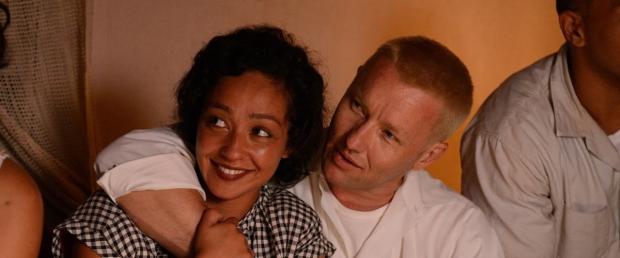Film Review: Loving, Allied
You can’t beat it for irony: The 1967 Supreme Court case of Loving v. Virginia pitted the state of Virginia against, well, loving. The plaintiffs were Mildred and Richard Loving, a couple charged with the crime of being married. She was black, he was white, and though their ceremony was performed in DC, they lived in Virginia, and that state’s courts charged them under the “Racial Integrity Act of 1924.” In a unanimous decision, the Supreme Court ruled the Virginia statute unconstitutional (as a violation of the Equal Protection Clause of the 14th Amendment), effectively ending all miscegenation laws in the United States.
(How responsible this was for the state adopting the tourist slogan “Virginia is for Lovers” two years later, I couldn’t say.)
Loving, the story of Richard and Mildred, is this year’s Brooklyn, a deeply moving film about the recent past that resonates forcefully in modern America. (Among other things, the language of the decision was heavily quoted in Obergefell v. Hodges (2015), the case that legalized gay marriage.)
Writer-director Jeff Nichols (Mud, Midnight Special) minimizes the drama of the legal struggle to focus on the lives of the Lovings, a rural couple who didn’t ask for much more out of life than to be left in peace to build a house and raise a family. Instead, they are arrested and sentenced to a year in prison, a sentence that will be not be enforced if they agree to stay out of state for 25 years. Essentially, they are banished from their families, friends and home.
For such a dramatic situation, Loving is a quiet movie with little dialogue, carried by the stoic determination of an unrecognizable Joel Edgarton and the wounded eyes of Ruth Negga. Both are enormously appealing for their modesty, people who aren’t used to speaking up for themselves or bucking the establishment; in court, Richard can barely make eye contact with the Bible-quoting judge who has such contempt for them.
There is no big trial scene as the ACLU takes up their case and argues it in the Supreme Court. One isn’t needed; the state’s argument was a threadbare embarrassment, no worth wasting time on. Drawing on the 2011 documentary The Loving Story that contained footage of the couple in the 1960s, Nichols lets the drama play out on his characters faces rather than through their words. I’ve seen it twice and I was just as moved the second time as the first.
***
Another new film about a married couple makes no such claim on the emotions. Allied stars Brad Pitt and Marion Cotillard as undercover agents—he’s a Canadian working in the RAF, she’s French—during World War II who meet while on an assignment to assassinate a Nazi official in Casablanca. They are required to play husband and wife, and once they get into character they find it suits them, so they carry it over to real life. Back in London, things go swimmingly despite such inconveniences as Nazi bombs falling on the hospital where she is about to give birth. The real sticking point comes when Pitt is told that his wife is suspected of being a German agent; and if she is, he will be expected to kill her.
Any number of things go wrong with this movie, beginning with the lack of chemistry between its stars. (If you gave any credence to those rumors about Pitt and Cotillard having an affair during filming, you’ll change your mind when you see them together onscreen.) It doesn’t help that the story means to keep us off guard about her character, putting more onto Pitt’s shoulders than he’s capable of handling. Humorlessly told, the story is so old-fashioned that we assume there will be some sort of an unexpected twist to it. To the extent that that is the case, it’s not very well handled: the finale won’t have you reaching for your hankie as much as checking your watch.

